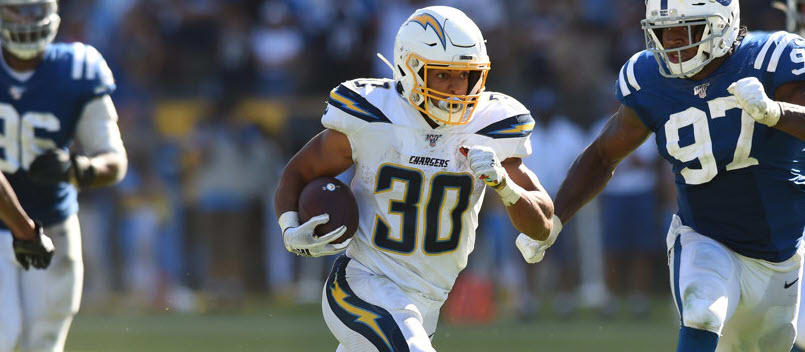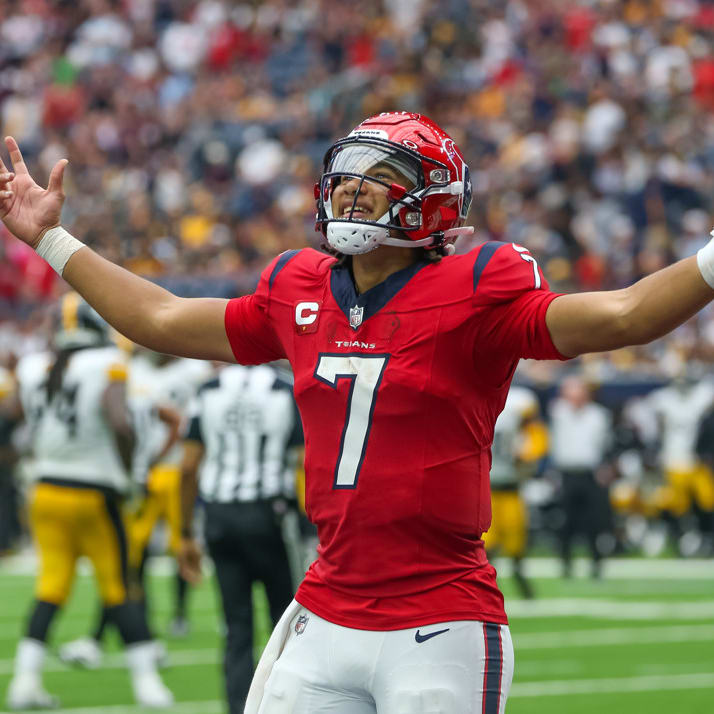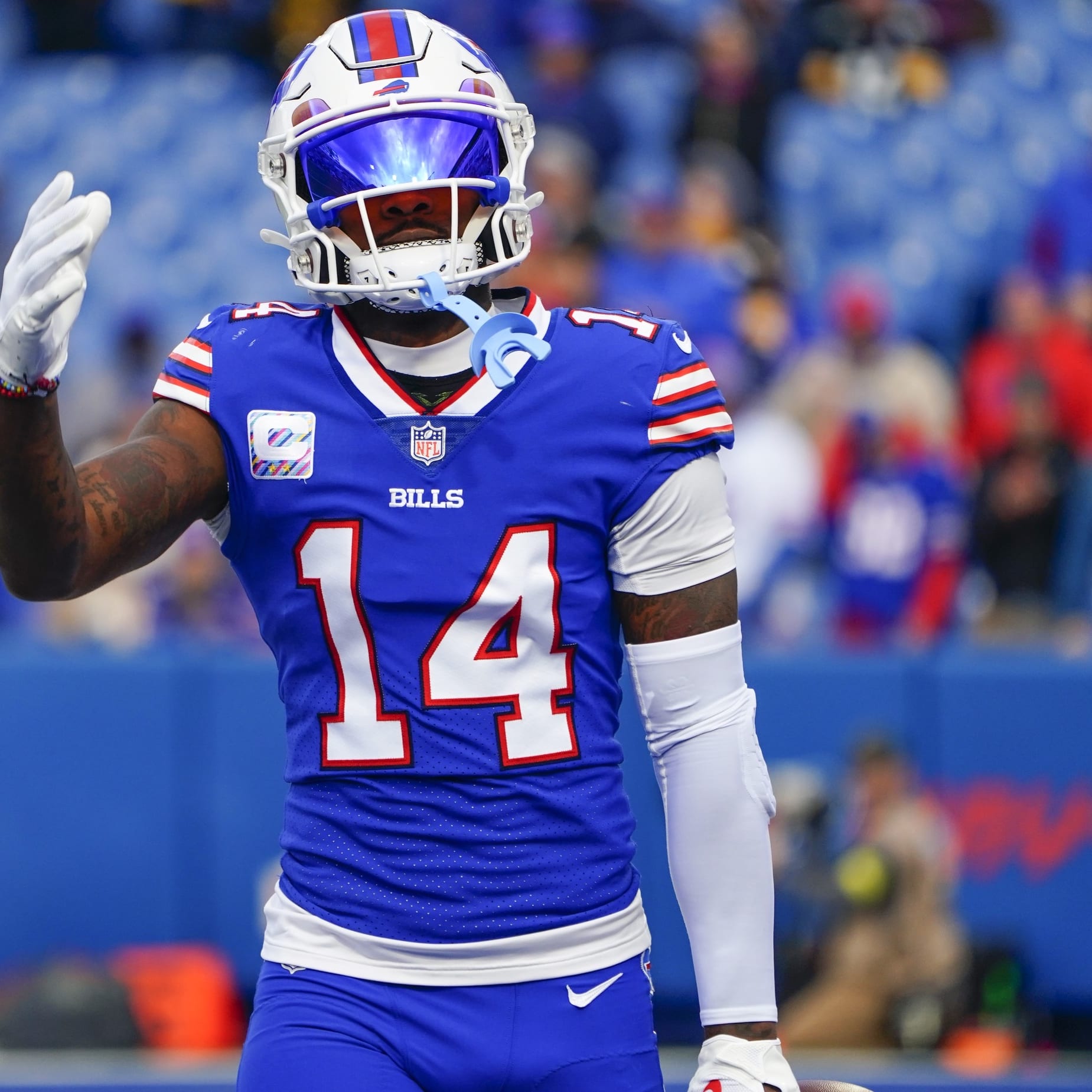This article is part of our Dynasty Strategy series.
One of the more pressing player evaluations for fantasy football in 2020 is Austin Ekeler. As a third-year back he produced at an elite level in 2019 but faces a number of circumstantial changes going into this year, and at a much higher price tag to raise the stakes from a year ago. In this article I mean to dive deeper into Ekeler's 2020 projection, weighing it against the current ADP market to assess the value – good or bad – that he might present to fantasy owners this year.
BACKGROUND
Ekeler's 2019 season was exceptionally impressive. It's reasonable and probably correct to assume his production will lag relative to last year, if only because he reached such outrageous heights. Namely, his efficiency as a receiver seems unlikely to hold up – it isn't easy to catch 85.2 percent of your targets at 9.2 YPT, especially over 993 yards. Even so, the other side of the coin presents a similarly inescapable probability: players who reach that level of productivity are uniquely good, and typically present uniquely high baselines. Ekeler won't be the only running back in his ADP range to face regression of some sort, but we have reason to believe his talent dictates a baseline above those of his competition.
Going back to 1992, a query on Pro Football Reference for running backs who caught 80 percent or more of their targets 8.0 or more yards per target generates an interesting list. Listed in descending yardage volume with catch rate and YPT average:
1. Marshall Faulk (1,048, 84.5%, 10.17)
2. Ekeler (993, 85.2%, 9.19)
3. Larry Centers (962, 84.9%, 8.08)
4. Charlie Garner (941, 82.0, 8.48)
5. Marshall Faulk (908, 81.1%, 8.57)
6. Alvin Kamara (826, 81.0%, 8.26)
7. Brian Westbrook (703, 83.9%, 8.08)
8. Priest Holmes (672, 86.4%, 8.3)
9. Priest Holmes (614, 82.7%, 8.19)
10. LeSean McCoy (539, 81.3%, 8.42)
Maybe Ekeler was somewhat lucky last year, but what are the odds that he was so lucky that his production got catapulted to the top of this rather legendary list of names? The per-target efficiency ranked behind only Faulk, and his volume even outpaced Faulk in one of his two qualifying seasons. The first concerning names on the list are probably Roy Helu at 14 (477, 89.4%, 10.15) and Felix Jones at 15 (450, 92.3%, 8.65), but you'll notice their volume was less than half that of Ekeler last year. If Ekeler is only a situational player, then why did only star running backs come close to matching his volume?
Ekeler has been uniquely productive his whole NFL career, and any good prospect evaluation process would mark him for a standout prospect in hindsight. Ekeler played in a low level of competition at Western Colorado, but even the harshest critic would have to admit his production is compelling. A four-year starter, Ekeler played in 40 games while amassing a truly absurd 5,857 yards (6.24 YPC) and 55 touchdowns, adding 115 receptions for 1,215 yards and eight touchdowns. Even at a low level of competition, a gadget player is not capable of shouldering these workloads. It's easy to look at numbers that big and lose the significance of the broader context, so phrase it another way: over 40 games Ekeler averaged 23.5 carries, 146.4 yards, and 1.375 touchdowns per game to go with 2.875 receptions per game at 30.38 yards and 0.2 touchdowns per game. That's more than 175 yards and 1.5 touchdowns from scrimmage per game, for 40 games.
Ekeler not only boasted that ridiculous production in college, but he additionally posted strong workout numbers as an extra invite to the 2017 pro day for the University of Colorado. Who knows what kind of facilities Ekeler had access to at Western Colorado, but at 5-foot-8 and 5/8, 198 pounds he ran a 4.48-second 40 to go with a 40.5-inch vertical and 128-inch broad jump. Rather than luck or a unique rapport with Philip Rivers, the most likely reason for Ekeler's NFL success is quite plainly his own talent. Other factors might undermine or enhance his production, but he is not uniquely dependent on the offense around him for success.
There's a temptation to describe Ekeler as similar to Danny Woodhead, which is easily enough dismissed given their divergent production in similar circumstances. In Woodhead's two best Chargers seasons – 2013 and 2015 – he combined for 765 rushing yards (3.75 YPC) and five touchdowns in 32 games, adding 156 catches on 194 targets for 1,360 yards and 12 touchdowns through the air (80.4 percent catch rate, 7.0 YPT) on 1,024 snaps. In his last 30 games Ekeler produced 131 catches on 161 targets for 1,397 yards and 11 touchdowns (81.4 percent catch rate, 8.68 YPT) on 957 snaps. It's pertinent to note that Ekeler also posted 1,111 rushing yards (4.7 YPC) and six touchdowns on the ground. These players are not similar. Ekeler provides much more explosiveness than Woodhead did, and on much greater volume. This speaks to the fact that Ekeler is not a situationally-dependent producer.
Rather than Woodhead, Ekeler's talent is more properly understood when compared to a player like Alvin Kamara.
THE FUTURE
As much as it's unwise to question Ekeler's talent at this point, it is fair to quibble over his present price tag, which is much higher than what it was a year ago. Ekeler unquestionably worked well with Rivers, so Rivers' departure is an understandable source of anxiety at this elevated price tag.
Tyrod Taylor is instead expected to start for the Chargers, and rookie seventh-overall pick Justin Herbert isn't necessarily expected to outplay him anytime soon. It's reasonable to worry that Taylor will throw to running backs less often than Rivers did – Chargers running backs secured 29.1 percent of Rivers' targets the last two years, whereas the Bills running backs secured only 22.4 percent of targets over the 2016 and 2017 seasons. Keenan Allen-Mike Williams-Hunter Henry is one of the better WR-WR-TE lineups in the league, so it's not as if Ekeler is at any shortage of intimidating competition for targets. Then again, I think people are underestimating the chance that Ekeler is the sort of compelling talent that forces an offense to restructure itself to assure him usage.
While 29.1 percent of the Chargers' targets went to running backs the last two years, there was also a drastic jump in the backfield's share of targets as Ekeler's usage rose. The Chargers threw to running backs on 27.5 percent of the 2018 attempts, but that jumped to 30.5 percent in 2019, when Ekeler's snap count jumped from 348 to 609. Maybe it's a coincidence that Rivers threw to running backs more often when Ekeler started playing more often, maybe not. When Ekeler played only 197 snaps as a rookie in 2017, though, the Chargers directed only 22.6 percent of their targets to running backs. That might meet the definition of multiple coincidences, which I think should make you skeptical of the initial premise. Notice that the 2017 running back target rate of 22.6 is basically identical to Taylor's 22.4 percent in Buffalo.
Perhaps Taylor will pose a decline to Ekeler's pass-catching baseline. Even if he does, the Ekeler skeptic doesn't do enough to explain how this is more significant than the departure of Melvin Gordon, who drew 162 carries and 55 targets on 433 snaps last year. If the Ekeler skeptic takes up this question, they necessarily corner themselves into either (1) admitting that Ekeler might offset a pass-catching decline with an increase in rushing production, or (2) arguing that Justin Jackson and fourth-round pick rookie Joshua Kelley will at least claim the same amount of usage that Gordon did. The second course is more difficult to pull off, because if Gordon's exit leaves rushing usage up for grabs, then Ekeler is the most qualified candidate to seize that usage. There's a lazy assumption that Ekeler is one dimensional and only productive as a receiver, but it's based on nothing. Ekeler is objectively the most athletically gifted of the three runners, and he outproduced the Chargers' baseline rushing production over the last three years. In Ekeler's three NFL seasons the other Chargers running backs produced 3,185 rushing yards on 775 carries (4.1 YPC), while Ekeler's 285 carries in that span went for 1,371 yards (4.8 YPC). The Chargers are free to pursue lesser returns on the ground if they'd like, but if they want to move the ball then Ekeler has no peer on this team.
I don't expect this to mean much to anyone, but my personal projection for Ekeler's 2020 season is as follows, assuming a 16-game schedule: 160 rush attempts for 712 yards and four touchdowns, 59 receptions for 596 yards and six touchdowns on 77 targets. This would project to about 15.6 points per game in PPR scoring. This is significant fall from last year's 19.6 PPR points per game, yet at around 250 PPR points it would have ranked ninth among running backs last year.
The question of whether to buy Ekeler now isn't a question of whether he'll repeat his 2019 accomplishments, because his price doesn't demand any such thing. Ekeler was the fourth-most productive PPR back last year, but he's going for RB11 in NFFC drafts and RB13 in BestBall10 drafts over the past week. He's going later than Aaron Jones and Miles Sanders in both cases, and I think that's a mistake. If you're more worried about Justin Jackson than A.J. Dillon then I just don't know what to tell you, and whatever extent Ekeler benefited from Rivers' checkdown tendencies is matched by the Sanders production subsidized by injuries to Jordan Howard and the Eagles receivers. I wouldn't advise anyone to take Ekeler 100 percent of the time if you're doing a lot of drafts, but if it's a question of one bullet then I personally would prefer the Faulk-like player. I again go back to the Kamara comparison – I think the distinction between Ekeler and Kamara should be proportionate to the distinction in how you project the productivity of the Saints and Chargers offenses. In terms of talent Ekeler should be taken every bit as seriously as Kamara, but I just don't see that level of respect for Ekeler at the moment. What more does he need to do?












